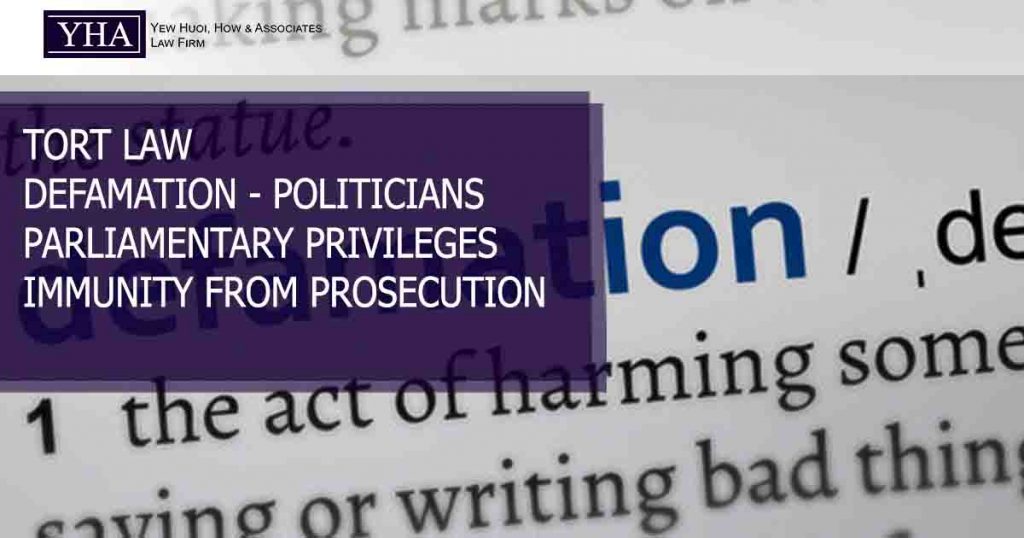誹謗
- Publication of a statement that lowers the reputation of another person.
Types of Defamation
- Libel – Defamatory statement in a permanent form (e.g. articles, Facebook posts, WhatsApp messages).
- Slander – Defamatory statement in a temporary form (e.g. spoken words).
Can a politician be sued for defamation in the Parliament?
No.
- A defamation suit is not possible against a politician for words spoken in the House of Parliament.
Why can’t a politician be sued?
- To enable Parliament to perform their functions effectively and without interference from anyone outside of Parliament, the Constitution confers certain rights and legal immunities under “Parliamentary Privileges” Members of Parliament (“MP”).
- In other words, it is to safeguard the freedom, the authority and the dignity of Parliament.
Is this governed by any Malaysia law?
Yes.
- Article 63(2) and 63(3) of the Federal Constitution – No person shall be liable to any proceedings in court for anything said or published by them in either Houses of Parliament.
- Section 7 of the Houses of Parliament (Privileges and Powers) Act 1952 – Immunity of members from civil or criminal proceedings.
- Generally speaking, MP enjoys complete freedom of expression in the House and in the committees of the House.
What are the actions that can actually be taken against the politician?
- Each House has power to discipline its own members.
- Each House can penalize its members for breaches of the privileges or contempt of that House.
- If a politician is accused of abusing his freedom of speech or of committing contempt of the House, he may be investigated, tried and either convicted or acquitted by the House itself.

